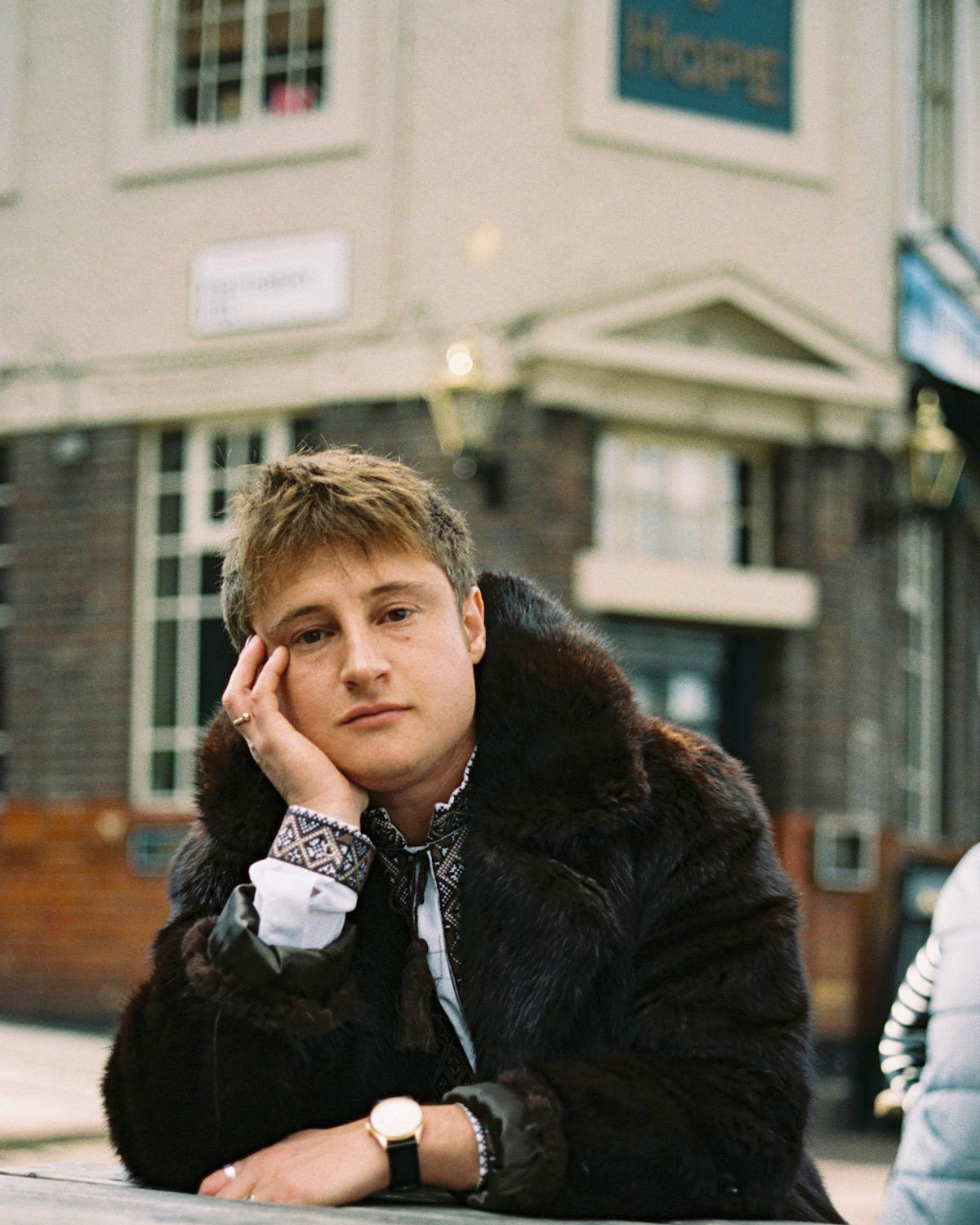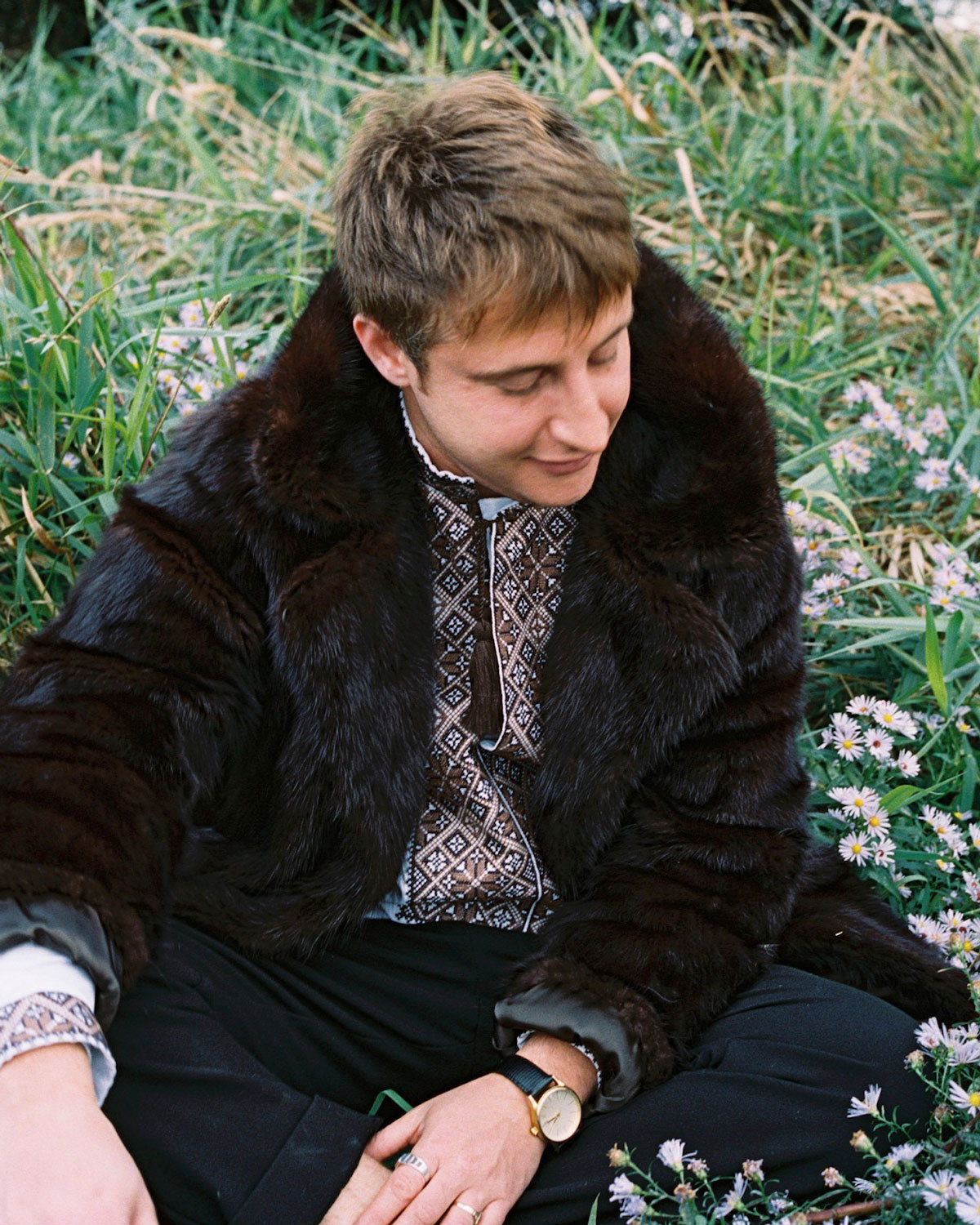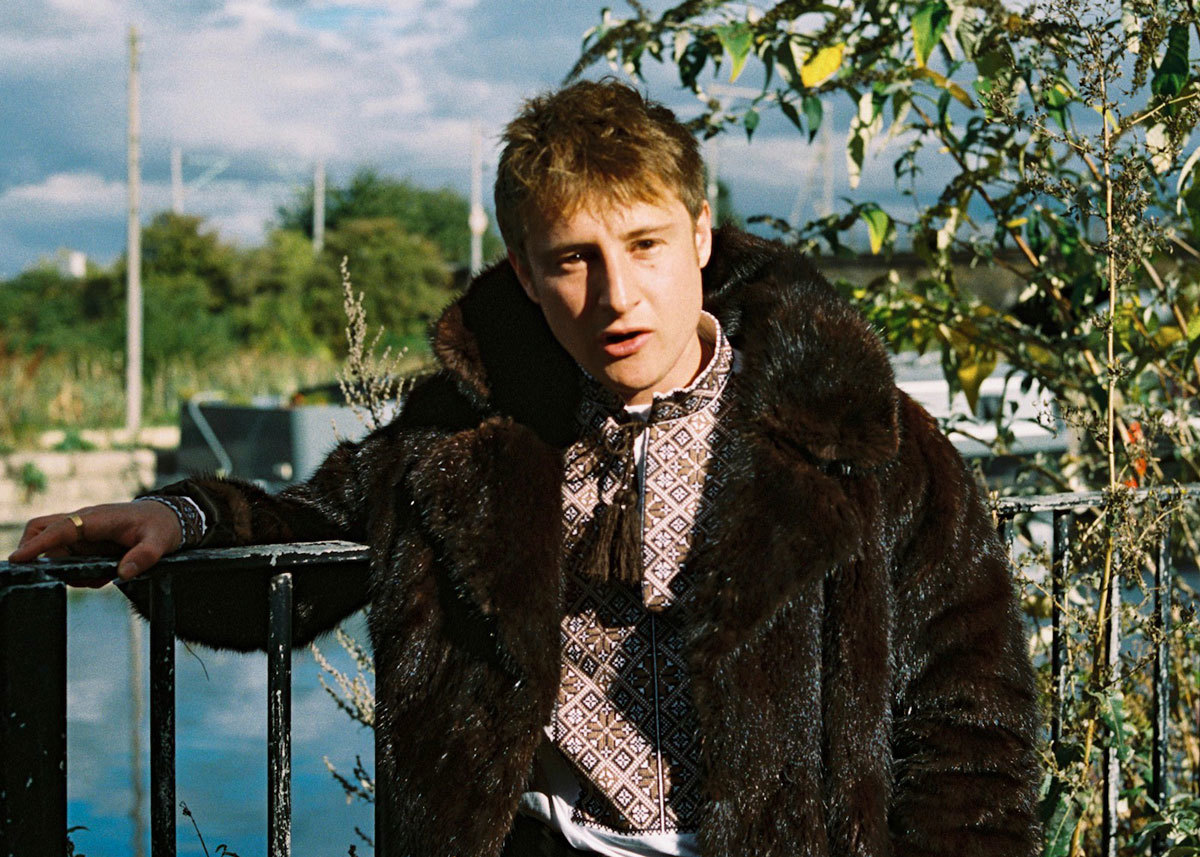What signifies a person’s gender, physicality, identity, attitude or sexuality? The modern world is progressively redefining our perception of gender, tailoring the idea of female, male, non-binary and trans to suit a specific individual. However, as our minds become more open, the traditional belief that there is a dominant gender still manifests itself in everyday life, where men still command the most earning power and respect, universally. Men land the highest pay packets whether that’s as film stars or surgeons, judges or journalists.
Laddish culture is the norm. Non-conformity, deep reflection and courage are required if a person is to self actualise in a balanced way. Neither muscles, nor wealth, nor conformity nor judgement maketh a man. Kit Redstone is an accomplished actor and scriptwriter who resides on a house boat bobbing around the London waterways. When I first met him over ten years ago, he went by the name Kat and identified as a female. Today he is called Kit and confidently explains his gender as trans. Treading a brave path of self discovery to establish a life for himself which accounts unequivocally for his own happiness, it’s easy to be left in awe of Kits powerful conception of identity.
Creative, funny, deep, open and honest, Kit’s journey of transition was facilitated by hormone replacement therapy. As Kit watched his body fat redistribute, his voice drop, his jaw line strengthen and new muscle groups develop, the physical self he should have assumed in utero took shape before his very eyes. Propelled at full throttle into his manhood, banal tasks such as entering the male changing room, society’s choice of pronouns to identify him and even his Facebook name, suddenly felt profound. Charting his take on modern masculinity from a unique perspective, Kit has co-conceived the play Testosterone with the all-male Rhum and Clay theatre collective. Reliving his first entrance into a gym’s male changing room, meeting the characters with which he compares and contrasts manhood, here, Kit calls for society to get over the idea of the trans person as a broken and vulnerable individual. In fact, he says, we a need a new non binary hero; “Where’s super Transman?” he asks.
When did you first start writing the script for Testosterone?
Myself and Julian (Spooner), one of the creative directors, were just having a chat about my transition and masculinity and we got into this enthusiastic conversation about everything I had noticed about being a man. It felt as though in a very short space of time, I had experienced a journey that could last a lifetime. Then we just thought ‘let’s make a show about this!’ That said, for me, the show is not really autobiographical. l have taken a moment that happened and expanded on it creatively. It’s using my transition as a departure, but it is about anyone’s identity, all men’s identity and we are using a trans character as a lens to explore the performance of gender. In a way we all buckle to expectation and the way we are not allowed to do certain things or we are allowed, all that kind of complication around playing our own gender.

What did you begin to realise about gender?
The show is about how we look at each other and judge. Men look to other men to codes of how to behave but also for other men to see where they fit in the pecking order. It’s similar with women too. When you see women who are so glamorous and so incredibly made up, it’s quite like the steroid men. To me, it feels like a double edged sword, it’s like vulnerability and armour. You feel these men with huge muscles are displaying their insecurity, the bigger they get the more insecurity you feel in them.
So then how did you come to process your own identity in terms of your masculinity?
When l transitioned, I didn’t think it would be any different, it’ll still be me but there will be some physical signifiers which make people use the word ‘he’ instead of ‘she’; particularly as people didn’t treat me as a boy or a girl. But there’s a big difference being perceived as an androgynous boy/girl than being read as a normal straight guy. In some ways it’s positive. You experience the fucked up privilege of being a man, for example, when you are on the phone talking to someone as banal as a phone company representative. l definitely hear, because of my voice, a definite respect there based on literally the division of a gender.
Do you miss the intrigue that you attracted pre transition?
I don’t know if I miss it but it definitely took some getting used to. It’s like wearing a new skin and just getting used to your body being different. You notice that you move differently, you have new muscles. You have to adapt to these bizarre changes. For the most part, it’s been brilliant, but l would be lying if I said it was completely easy. I didn’t receive any transphobic abuse, literally from the first month that l was on testosterone, no one even thought for a moment that l was a girl. It was instant.
I wondered if prior to your transition, there had been dysfunction that had typified that disjoint between the person you were and the person you wanted to be?
Totally. Before I transitioned, l was very unhappy about certain things that I just didn’t allow myself to fully acknowledge. I would create a narrative for myself that just justified being who l was, then occasionally that armour would slip and l would feel vulnerable. It got to a point where l thought, ‘l just have to be honest with myself.’ It was great that l had been proud of the person that l was and that l had existed in this middle ground between genders before, but it wasn’t a failure to admit that I didn’t want to grow up to be an old woman. It wasn’t denying my past, this was all about my future. When we are young we can flirt with androgyny. We can play with the middle ground between genders, but as you grow older your role in society becomes more cemented. To some extent that meant that l did not see a future for myself. It wasn’t that l didn’t want to live, I didn’t think about suicide, I just never wanted to look into the future because it looked so bleak and weird. Now l can think about things such as having a consistent relationship, or maybe having a family one day, growing old, liking the image that l see in the future.

It’s a journey.
Men looking at each other and projecting fantasy, that’s really what the show is about. Practically every person has an unrealistic idea of themselves and the person they project, so that they are always trying to reach and that’s always in flux. We go through this roller-coaster of performance, day to day. Most people don’t think about it because they don’t have to, but trans people have had to think about that performance so much that it really is at the forefront of their minds. For me, that was a large part of the first two years of my transition, when l was just constantly looking at other men and being interested and seeing where could l fit. Am l an aggressive man? Am l a camp man? Am l…whatever and not wanting to be anything that l wasn’t particularly, but more fascinated by the power dynamics and hierarchy, the alpha.
I nursed a transgender man post-op recently after a bi-lateral mastectomy, when he woke up he was elated about the process of having the surgery. He expressed such deep relief at the physical act of moving closer towards his masculine ideal.
It was a little bit more complicated with me, I never had big breasts so l had a reduction, l was almost ok with myself originally, but the reduction staved off the need to transition for such a long time because it was so effective. But when l had the full on male surgery, I remember going to the surgeon to have the bandages removed to check if everything was OK. l was nervous about my nipples being out of place, I felt fine and the feeling of relief was extraordinary. I will take my top off at any opportunity, not because l want to show everyone, but because as a teenager I used to watch boys prance around with their tops off in that way that typical lads do and l can do that now. That feeling of liberation, of not having to hide or change yourself, is something that you disguise when you are younger because you feel so uncomfortable on a physical level. l can’t get enough of being free.
What impact do you hope the play will have on audiences?
l would really like people to watch the play, whether they are a man or a woman or anything in between, to just think about their own gender and what sort of toxic behaviours they may be complicit in. What responsibility we all have in the way we might consciously or subconsciously give off microaggressions. It’s just trying to make people aware of the performance we play out every day and thinking that there are alternatives to that. Is that making us unhappy or has it stopped us from developing or forging relationships with people on a day to day basis?
Testosterone runs from 22nd November to 3rd December 2016 at New Diorama Theatre and is set for Edinburgh Festival Fringe 2017
Credits
Text Milly McMahon
Photography Hazel Gaskin
